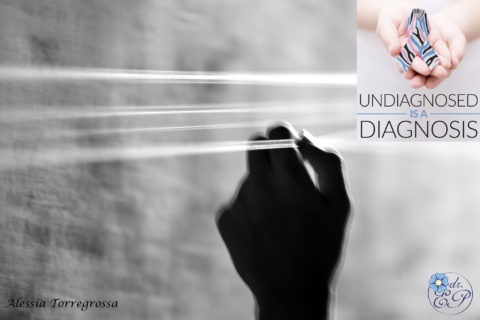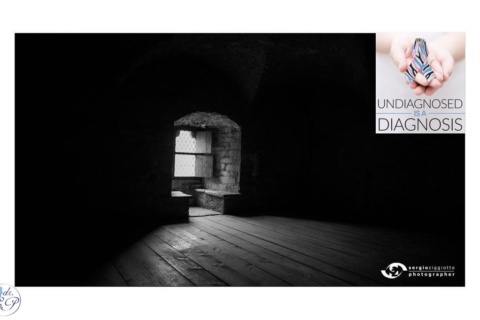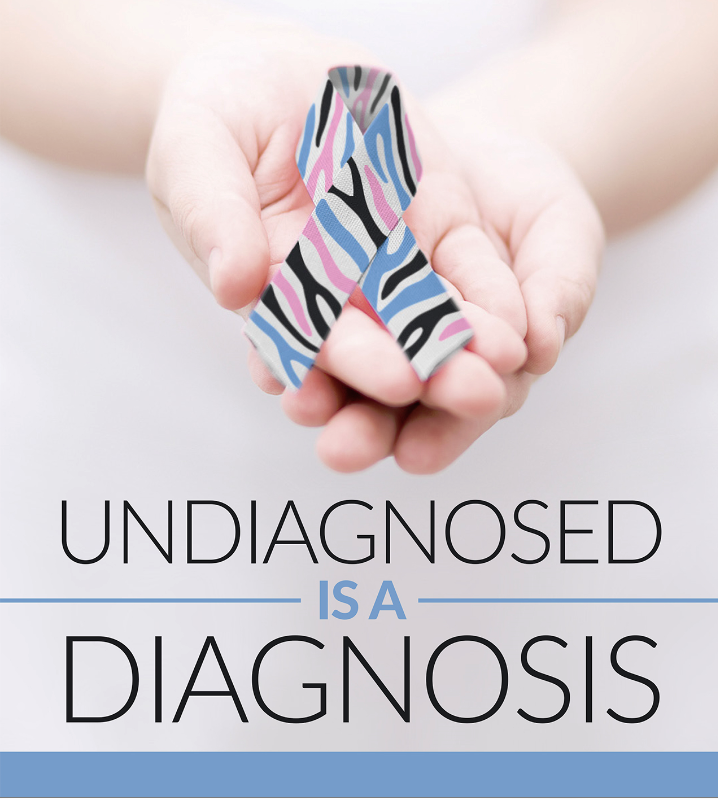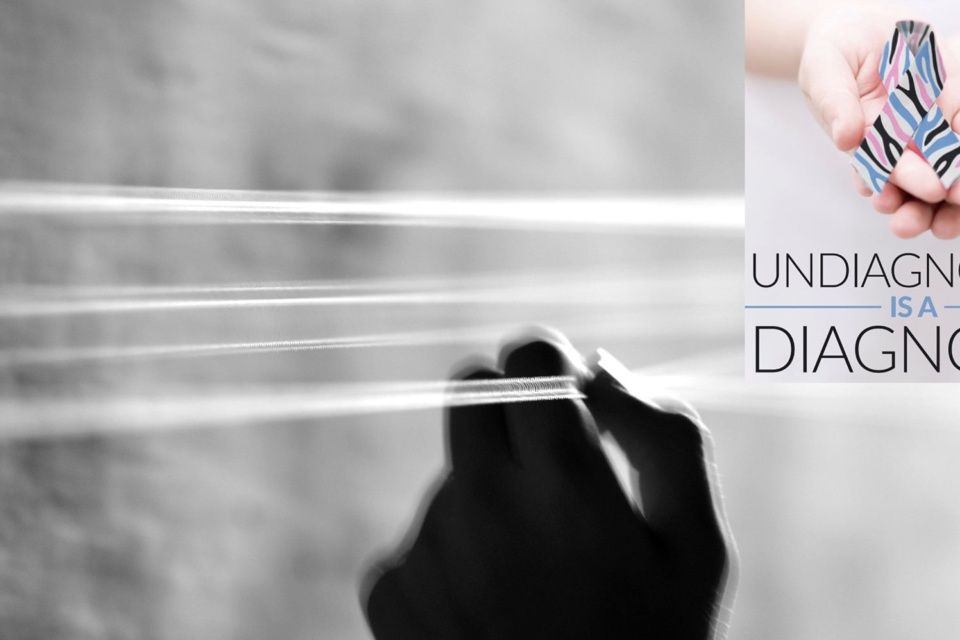The Diagnostic odysseys: Undiagnosed is a diagnosis
The Diagnostic odysseys: Undiagnosed is a diagnosis
By Eleonora Passeri, Anne Lawlor, Polly Moyer,
and Amanda Riggs Rackerby.

Photo by Alessia Torregrossa, Finestre di Assisi/Windows of Assisi
Undiagnosed, misdiagnosed, underdiagnosed: So, what can we do? by Amanda Riggs Rackerby and Eleonora Passeri.
My journey on awareness started when I looked into the blue eyes of a young girl. She looked like an angel with her curly blond hair. This young angel had struggled against an “unknown devil.” Her parents knew the name of her illness, their diagnostic odyssey was over. They were one of the “lucky” ones. As a scientist, when I was still working in the lab and dealing with biological samples of unidentified “subjects,” classified as having X or Y disorder, I never thought about being undiagnosed. A few years passed and my career then took a different path and I forgot about these undiagnosed patients. Then a mom reminded me of the existence of “In-Limbo-Patients.” Many people and their families perpetually continue their diagnostic odyssey. I used to believe that getting a diagnosis would then lead to a cure. I was young and very optimistic. From talking with patients and their mothers here are some things I have since learned:
- Undiagnosed: 1 in 20 patients are defined as undiagnosed and only 1 in 3 get a diagnosis after a genetic test.
- Misdiagnosed: Misdiagnosed means that some patients get the wrong diagnosis. Time is precious when you are sick, so a misdiagnosis can have severe consequences for patients and families.
- Underdiagnosed: Underdiagnoses happens when a person knows something is wrong, but it cannot be named. Giving a name to a disease is crucial because you need to know what you are fighting against in order to win.
I would like to see science help these patients, so what can we do? The first step is talking with them, they are the experts by experience, and they know the disease better than anyone else because they live with it 24/7. Researchers, medical doctors, and healthcare professionals should take into consideration what the patients are saying rather than assuming nothing is wrong with a patient just because the problem cannot be seen. Trust is integral in these cases. I introduce to you below mothers and patients who are still searching for a diagnosis. Today I challenge scientists to take a radical step and use a bottom-up approach by embracing these patients and mothers of patients. Start talking to them and listening with serious consideration. If this approach leads to faster diagnosis and more effective therapies then how can this approach be ignored?

Photo by Sergio Ziggiotto, Universal Mankind
Our undiagnosed 22q population: Where are they? by Anne Lawlor.
22q11.2 deletion syndrome can cause serious physical and mental health problems and families often search for years for an answer to multiple health issues whilst dealing with multiple appointments and lack of coordinated care. Only a small minority are diagnosed in the 1st year of life, for others a diagnosis can happen at any stage over the lifetime (the oldest known person to be diagnosed with 22q11.2 Deletion Syndrome was 72).
Included in the ‘late diagnosed’ are the 10% (approx) of parents who are diagnosed after the diagnosis in one of their children. It should also be noted that a positive parental diagnosis requires further testing of any other siblings in the family and that there are cases when more than one family member are found to have the deletion.
Despite being the second most common genetic cause of intellectual disabilities and despite the fact that testing for the condition has been available for over twenty years, 22q11.2 Deletion Syndrome remains a poorly recognized syndrome even among health-care professionals. With prevalence rates of 1 in every 2 – 4,000 live births and with 4 and three quarter millions of an Irish population there are an estimated 18 – 20 babies born per annum with 22q11.2 Deletion Syndrome in Ireland. With those estimates there should be over 2,000 people diagnosed. Currently, there are 160 families in the Irish support group and roughly the same amount on the official genetic database.
The very variable expression of 22q11.2 Deletion Syndrome makes for clinical challenges especially in the absence of more serious symptoms like congenital heart disorders, immune complications, and palatal anomalies. However, delayed diagnosis for families means delayed access to resources and crucially, early intervention services and much-needed parental knowledge on developmental, educational, behavioral and mental health issues. The ‘not knowing’ why your child is having difficulties has a profound effect. In order to improve both recognition and more rapid diagnosing of 22q11.2 Deletion Syndrome the 22q11Ireland Support Group are advocates for the introduction of newborn screening for 22q11.2 Deletion Syndrome.

Diagnostic Odyssey: Re-open the cold cases by Polly Moyer.
Many people who are still waiting for a diagnosis will have experienced misdiagnosis and mistreatment. Sometimes the mistreatment takes the form of medications given on the basis of the misdiagnoses (there’s often more than one), which could have a negative impact and potentially impede progress once an accurate diagnosis is reached. Sometimes the mistreatment is also psychological and results from some doctors assuming that normal test results mean that nothing is wrong with their patient and, therefore, dismissing the symptoms – and them. The inference (implicit or explicit) from some clinicians that the symptoms are caused by psychogenic/psychological factors is, unfortunately, still reported. In my view this does a disservice both to patients and other, more thorough and determined, doctors. Being undiagnosed is bad enough – none of us need to get funny looks from doctors, to have symptoms disregarded or to be made to feel that it is our fault that we are unwell.
I can only imagine how much psychological damage occurs for parents or carers of undiagnosed children, especially if there has been doubt over the validity of the symptoms. I am relieved that there are organizations in the UK which support families while they wait for someone with the relevant professional expertise to join their team, either by providing that elusive diagnosis or by changing the symptom management landscape – preferably both. Whilst it is well-known that ending the diagnostic odyssey does not mean that our struggles are over, it can help patients – at last – feel validated. Likewise it can empower them to access other families and individuals facing similar struggles.
Without a diagnosis it can feel that we are lost in the system, falling through the gaps and left to cope alone. Without a diagnosis it can also be challenging to get support in real life, with schooling, home life, and in our careers.
But the hardship of being undiagnosed doesn’t end there. Instinctively patients know that, once they are diagnosed, their data could be useful for others in a similar situation, especially if gathering and studying it could lead to the development of treatment options. Not being empowered to participate in surveys and trials that could enhance or prolong life for others means we can’t ‘pay it forwards’ and I’ve never encountered a rare conditions patient who doesn’t want to do that. Even if patients know it won’t help them, personally, the impetus to support research and development is strong and seems healthy on all levels.
So I call on all clinicians to put their assumptions about so-called ‘medically unexplained’ or ‘functional’ symptoms to one side, not let anyone become lost in the system, re-open cold cases as diagnostic testing equipment becomes more sophisticated and work with their patients and other professionals to establish a working diagnosis. It’s said that ‘undiagnosed is a diagnosis’ but it’s not one anyone should have to live with for long. It is a no-man’s land of uncertainty and can feel like a hostile place to be.

